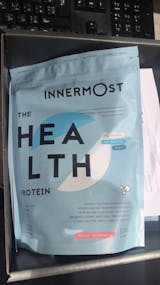More and more Londoners are choosing to start their weekends off brunching with friends over a delicious plate of food and cup of coffee. And whilst many restaurants are getting their brunch on- quickly adapting to the craze- it's becoming increasingly tough to find the best brunch spot in London amongst the hundreds of available options. Because no one likes a dry piece of toast or a smoothie with simply no superfood, we thought we’d help you out by telling you some of the best brunch spots in London.
Farmacy
Farmacy is everything you’d imagine a trendy, plant-based restaurant in the heart of Notting Hill to be. Highly instagramable, loaded with healthy food and lined with groups of well-dressed young professionals. With dishes like buckwheat pancakes, avocado on sourdough and house-made vanilla infused cashew yoghurt, this health oasis is what post-workout brunch dreams are made of.
Bad Egg
Bad Egg is an electric diner in the Moorgate area of the city. Most famous for their ‘frunch’- bottomless brunch every Friday- fuelled by prosecco, Bloody Mary’s and Mimosas, Bad Egg has quickly become one of London’s ultimate weekend guilty pleasures. End your week off eggcellently with their famous Bad Egg Burrito, their Snicker Bocker Glory pudding or even their cheeky cheeseburger topped off with, of course, an egg.
Avenue
Nestled in the heart of Mayfair, Avenue pays tribute to a Manhattan-style brunch with a menu filled with American cuisine. With dishes like Buttermilk waffles, Bacon ‘n’ spinach Mac ‘n’ Cheese, as well as poached egg muffins- Avenue gives you all the American brunch feels from right here in London.
Bala Baya
Tucked away in a brick-exposed railway arch in Southwark, Bala Baya is a new Tel Aviv-inspired restaurant cooking up one of the most diverse and filling brunch menus in London. Make up your own brunch plate with choices like strained yogurt, grilled Turkish chillies or date & cardamon butter or pick a more traditional dish like granola and berries or Blackberry Pitta French Toast.
Avo Bar
Inspired by the global growing love for avocados, the Avo Bar is a new popup café dedicated entirely to the awesome avocado. Based in Covent Garden, you can pick from a range of nutritious avocado bowls, toasts, salads and even a range of avo based desserts whilst sitting in a Californian styled café with living plant walls and natural décor. Whether you absolutely love avocado or just want to opportunity to snap a shot in this quirky little popup café, the Avo Bar is definitely a brunch spot you don’t want to miss.
Jikoni
Global cuisine inspired by head chef Ravinder Bhogal- Jikoni offers a wide range of exotic menu options from Prawn Toast Scotch eggs and Kimchi Paratha to Tamarind glazed bacon waffles and Mutton Keema Sloppy Joes. From the petal pink exterior that stands out on the Marylebone street, right down to the exciting mix of modern and traditional ingredients and dishes from all over the world- Jikoni takes you on a food adventure right from the moment you walk in.
Granary Square Brasserie
Slap bang in the heart of Kings Cross, brunch at Granary Square Brasserie offers you not only a famous view of the fountains next to Regents Canal, but also a selection of delicious brunch options. From traditional granola and eggs Benedict to more exquisite options like the crispy duck salad or smoked haddock. Sitting in one of London’s most vibrant locations, this is the perfect pit stop to refuel before heading out for a day on the town.
Pickled Fred
Hiding 20 seconds away from Shoreditch’s Brick Lane, Pickled Fred is an exciting new Pan Asian restaurant dishing up a fresh take on Asian food. With interesting dishes like Chickpea pancakes with saag tofu and pickled cauliflower or lemongrass Flourless chocolate cake- Pickled Fred is guaranteed to get your Asian taste buds moving to a whole new groove.























